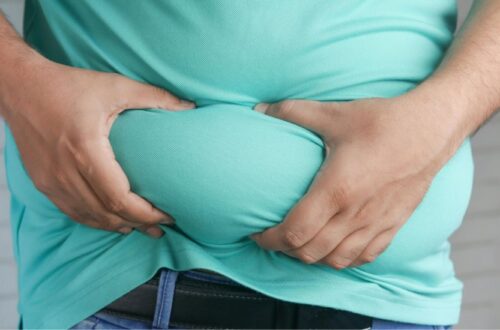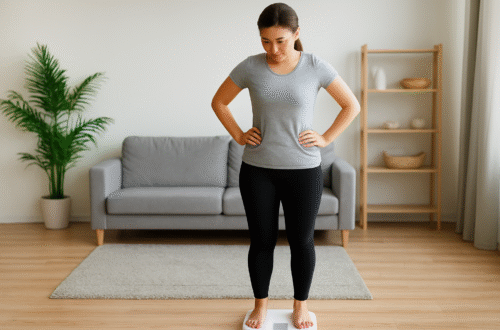I recall one summer after I had finished a vigorous workout in the gym and when I was glancing at myself in the mirror, I was filled with sweat at every part of my body. The initial idea I had was, wow, does sweating help burn fat? I must have burnt some fats today.
Like most people, I believed that flushing out sweat was a direct sign of burning fat. But as I researched and experimented, I realized sweat does not necessarily mean fat loss. It made me question: does sweating help burn fat or is it just the body cooling down? I even tried saunas, hot yoga, and outdoor running in the scorching heat, thinking that the more I sweat, the more fat I would lose — but that wasn’t the case.
Although I actually weight-loss a number of pounds in the short term as shown by the scale, I came to the realization that most of this was only water weight. I understand why you are here. You are asking me the same question, Does sweating burn fat or is it a Weight Loss myth? If you are confused, I was once confused, and in this article, I will unravel everything to you both scientifically and personally. By the conclusion, you will have a clear idea of what actually sweating is doing to your body, how it influences the process of losing weight, and whether or not it is worth running around to lose fat by sweating.
Water Weight Loss and Sweating
In my experience, sweating has the greatest impact of temporary loss of water. As an example, I would be able to lose up to 2 pounds after a 30 minute class doing hot yoga. I was initially light and had a feeling that I had lost some fat but once I took some water, my weight went back to normal. This made me realize that sweat is not fat, it is simply a way of cooling the body down. HealthMatch says that in the short run, sweating will help you feel slim, but it is not a good way to lose fat.
Sweating and Calorie Burn
Here is where things begin to get misunderstood. As you get sweaty your heart rate goes up, the body labors more to keep you at normal temperature. It is actually Burning Calories, but not to the extent that people believe it does. In the article of Medical News Today, it was said that a 30 minute session in a sauna could only burn 50-100 calories. That is nothing in comparison to a good exercise such as jogging or weight-lifting. Nevertheless, the increase in sweat during training such as HIIT or cardio may signal more calories burned, but it is not the sweat itself that is working, it is rather the intensity of workouts.
Pros and Cons of Sweating to lose weight
Pros:
- Helps to control body heat in exercise.
- Provides satisfaction upon workouts.
- Short-term weight loss of water, handy in the case of athletes who must gain weight.
- Combination of exercise and increased calorie expenditure (May) slightly.
Cons:
- Weight loss in water is not fat loss but merely a temporary one.
- May lead to fatigue and dehydration in the absence of fluids.
- Gives an illusion that the harder one sweats, the more they are losing fat.
- Possibility of overheating in case of overuse (such as in saunas or hot climates)
In my case, the post-exercise detox effect was pleasant since I felt a lot lighter after a sweat, although I needed to be reminded that fat was only lost during regular exercises like cycling and not the intensity of the sweat.
Why Sweating Feels Like Fat Loss
The first cause which makes people relate sweat with fat loss is psychological. By the end of the gym session when you are sweating, you get the impression that you have achieved more. I would compare the workouts in which I almost never sweated to those in which I left dripping, and the drippy ones were more effective. However, the Degree Deodorant health guide says that sweating is not an indication of the body burning fat, it is just that the body needs the cooling. Real fat loss is achieved by developing a deficit of calories.
My Personal Feedback on Sauna and Workouts Testing
At some time, I myself had a decision to try to prove this theory. I purchased a one-month pass to the sauna in my local fitness center because I believed that this would help me lose weight faster. I noticed that the scale was reduced by 1-2 pounds after every session. However, my weight was immediately up again after several hours of rehydrating. It was disheartening though it opened my eyes as well. Saunas helped me to relax, enhance my recovery and even help with muscle soreness but they never burned fat. This was when I started to see body fat reduce as I not only concentrated on structured exercise, such as strength training and cardio, but a healthy diet as well.
Does Sweating Burn Fat? The Final Truth
Then, we should put that to rest: Is sweating a good way of burning fat? The simple response is no. Sweating is simply letting your body cool off through releasing water. The actual fat burning occurs when you are in a calorie deficit when your body is burning stored fat as energy. Exercises that help in burning calories may also be accompanied by sweating yet it does not cause fat burning. It all depends on exercise and healthy eating as Vincentmec elucidates.
FAQs
Q1: Does increased sweating imply increased fat burning?
No. More heat can be regulated by simply sweating. The loss of fat is not determined by the amount of sweat produced but rather by the amount of calories burned.
Question 2: Can I lose weight when sitting in a sauna?
Yes, but only water weight. You lose pounds in a sauna but the pounds are gained later when you rehydrate therefore it is not fat loss.
Q.3: What happens to me after a sweaty workout: I lose weight.
Loss of water is through loss of fluid. Weight loss occurs with time in terms of regular exercise and diet in calorie deficit.
Conclusion
Exercise may make you sweat and feel accomplished, but sweating itself does not directly burn body fat. It is simply your body’s way of cooling down, not fat loss. So, does sweating help burn fat? The answer is no — real fat loss comes from a calorie deficit through diet and consistent exercise. Consider sweating as a sign of effort, but always focus on the bigger picture of overall health.






